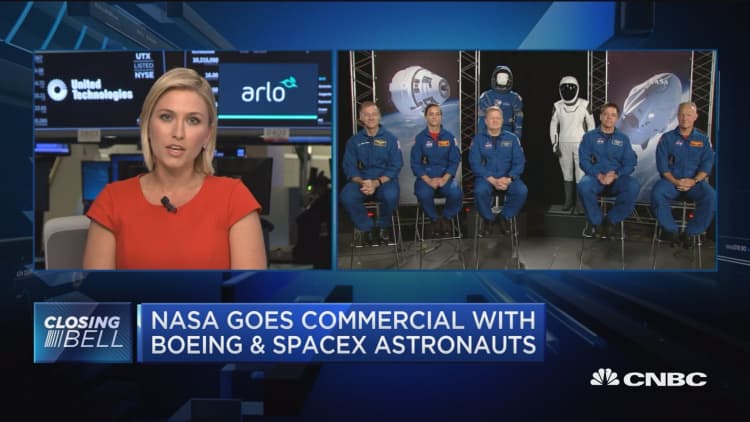
The space industry is dominated by private companies but one of the biggest banks on Wall Street is telling clients to pay attention to coming investment opportunities.
"A number of events in recent weeks have the potential to accelerate the investment significance of the space economy from what is mostly in the private equity domain to the public equity domain," a team of Morgan Stanley analysts said in a note Thursday. "We want to stay ahead of the curve during this critical time of capital formation."
Morgan Stanley reiterated two of its previous convictions in this latest note: Investors are generally not interested in space opportunities, and that lack of interest is comparable to the lack of interest in autonomous vehicle companies a few years ago. Autonomous technology moved "from complete obscurity and skepticism to a dominant investor theme," the firm said in an October report. Since then, Morgan Stanley says its conversations with people "in the U.S. government, military, and intelligence communities overwhelmingly indicate that space is an area where we will see significant development."
Five events this summer "increase investor significance" in space, the firm says: The Pentagon's plan to establish a Space Force by 2020, NASA introducing the first astronauts assigned to SpaceX and Boeing flights next year, the accelerating testing programs of Virgin Galactic and Stratolaunch, congressional concerns about abnormal behavior by a Russian satellite and a new Pentagon report on China's advancing space capabilities. Morgan Stanley says these topics together will accelerate the U.S. need to increase its access to space while further decreasing the technological costs.
The space industry grew 7.4 percent last year to be worth over $384 billion, the Space Foundation said in a July report. Morgan Stanley sees that economy growing to more than $1.1 trillion by 2040, driven by the need for a space-based telecommunications network as wireless data usage increases.
"We believe Space is increasingly important and could emerge as a significant investment/capital markets theme over time," Morgan Stanley said Thursday.
Morgan Stanley admits investment opportunities are limited for the time being. Look to companies providing and benefiting from internet bandwidth, the firm says, where most of the upcoming value in the space industry will come. In October, the firm compiled a diversified list of stocks as Morgan Stanley's "Space 20" — the companies best poised to benefit from the exponential growth the firm expects. Technology and legacy aerospace companies such as Alphabet and Boeing feature prominently, along with perceived dark horses such as GoDaddy and Analog Devices.
SpaceX is one of many private space ventures Morgan Stanley sees as becoming the backbone of this burgeoning industry. Worth about $28 billion, SpaceX may become a $50 billion juggernaut through its launch of a satellite broadband network, Morgan Stanley said in October. SpaceX developing reusable rockets is "an elevator to low Earth orbit," the firm said at the time.
"When Elisha Otis demonstrated the safety elevator in 1854, the public may have struggled to comprehend the impact on architecture and city design. Roughly 20 years later, every multistory building in New York, Boston, and Chicago was constructed around a central elevator shaft," Morgan Stanley said. "It all comes down to SpaceX."
The vast majority of private space investment has come as the government has reeled in its spending in recent years. While Morgan Stanley sees the industry as reaching $1 trillion in the next three decades, that's only a third of the $2.7 trillion predicted by Bank of America Merrill Lynch.
WATCH: This Brooklyn startup wants to make spacesuits at a fraction of NASA's cost



